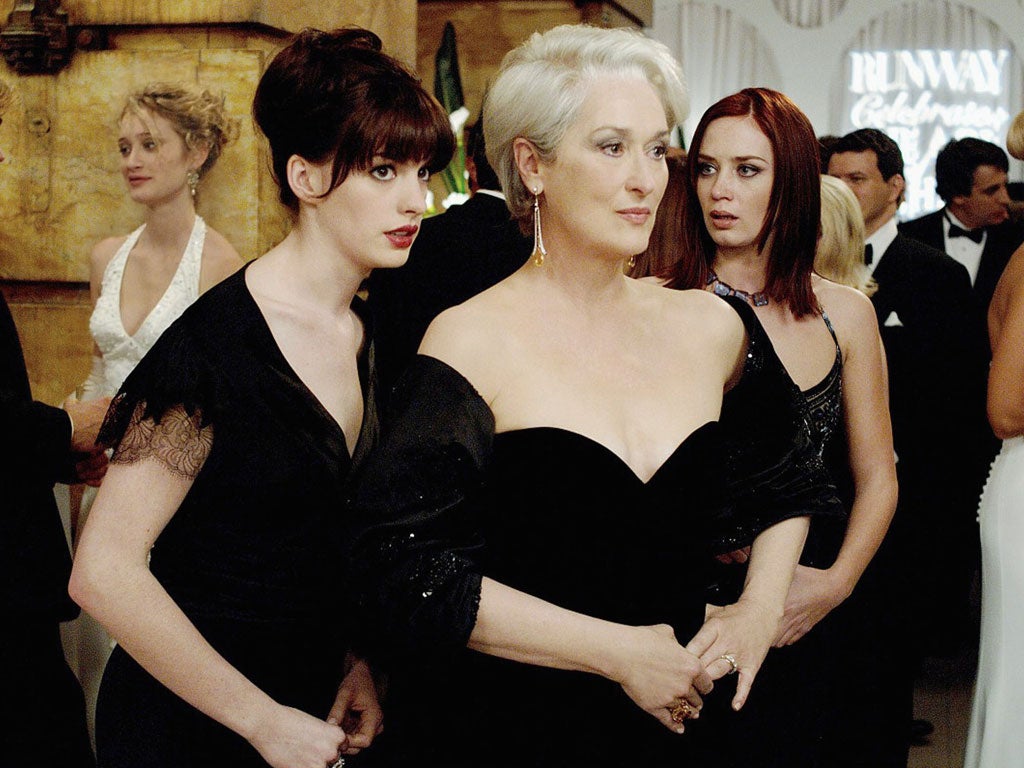Be careful if you're beautiful... and at work
Pretty women should find out if their female boss is at peak fertility before asking for a raise

Your support helps us to tell the story
From reproductive rights to climate change to Big Tech, The Independent is on the ground when the story is developing. Whether it's investigating the financials of Elon Musk's pro-Trump PAC or producing our latest documentary, 'The A Word', which shines a light on the American women fighting for reproductive rights, we know how important it is to parse out the facts from the messaging.
At such a critical moment in US history, we need reporters on the ground. Your donation allows us to keep sending journalists to speak to both sides of the story.
The Independent is trusted by Americans across the entire political spectrum. And unlike many other quality news outlets, we choose not to lock Americans out of our reporting and analysis with paywalls. We believe quality journalism should be available to everyone, paid for by those who can afford it.
Your support makes all the difference."Don't hate me because I'm beautiful" goes the now-infamous line in a TV ad. As with all catchphrases, there is more than a bit of truth in the expression. It now appears that women who look like the actress Kelly Le Brock, who spoke the line, should abandon hope of female solidarity when friends and colleagues are at their most fertile.
According to scientists, attractive women with female bosses need to be extremely cautious about when they ask for a pay rise. Women at peak fertility, says a new study, are much more competitive with attractive counterparts, as the warring duo played by Anne Hathaway and Emily Blunt in The Devil Wears Prada amply showed.
In the new study, psychologists used a test which women completed with an on-screen virtual partner. The test involved an economic game where the woman had to make an offer to the partner. She had to offer a certain amount and keep the rest for herself. At the end of the test, they rated the partner's attractiveness on a 10-point scale.
The results show that women in the fertile stage of the month made smaller offers to attractive women. On average, women at the high-fertility stage offered 25 per cent less to the most attractive women than they did to the least attractive women. Women at the low-fertility stage offered 20 per cent more to the most attractive women than they did to the least good looking, which suggests, say the researchers, that low-fertility women are less competitive with attractive women.
According to the study, at Wellesley College in the US, the phenomenon is a hangover from hunter-gatherer days, when a woman had to look after herself and deny resources to other women who might be competing for good male stock.
"What we found supports the idea that, among women, competitiveness during periods of high fertility is linked to the withholding of resources from potential rivals," said Dr Margery Lucas, professor of psychology. "Resource competition is important because women need to acquire products – clothing, makeup, accessories, and so on – to enhance their attractiveness. By offering less to attractive women and keeping more for themselves, fertile women can help to enhance their own appearance and weaken a competitor's ability to do the same."
She added: "Women today should be aware that in, for example, salary negotiations, menstrual cycle phase, along with the attractiveness and sex of the negotiation partner, could interact in complex and potentially costly ways."
Join our commenting forum
Join thought-provoking conversations, follow other Independent readers and see their replies
Comments